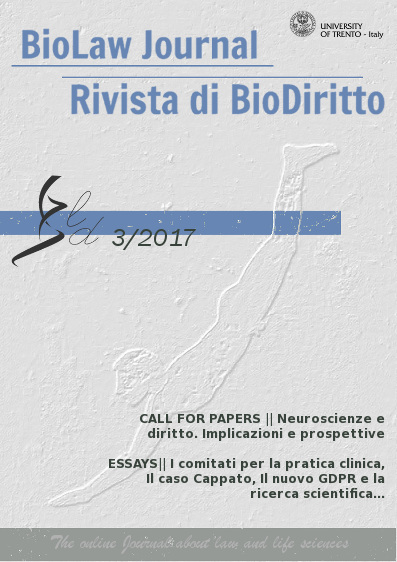The neural correlates of deception as evidence in courts: an ongoing debate
DOI:
https://doi.org/10.15168/2284-4503-269Parole chiave:
Neuroimaging, lie detection, criminal proceedings, Daubert hearing, fundamental rightsAbstract
Recent neuroimaging studies investigating the neural correlates of deception among healthy people have raised the possibility that such methods be applied in criminal proceedings. At present, however, legal practitioners are aware of the challenges to be faced. The approach adopted in this paper is comparative and the methodological limitations and legal issues that raise from the application of fMRI-based lie detection in court are thus addressed. Two systems are taken into account: on the one hand, the Italian criminal system, and, on the other, the US one. The purpose of this work is understand what can be expected from neuroscience evidence in the foreseeable future.
##submission.downloads##
Pubblicato
2017-11-01
Come citare
1.
Jelovcich M. The neural correlates of deception as evidence in courts: an ongoing debate. BioLaw [Internet]. 1 novembre 2017 [citato 19 febbraio 2026];(3):161-83. Disponibile su: https://teseo.unitn.it/biolaw/article/view/1265
Fascicolo
Sezione
Call for papers





